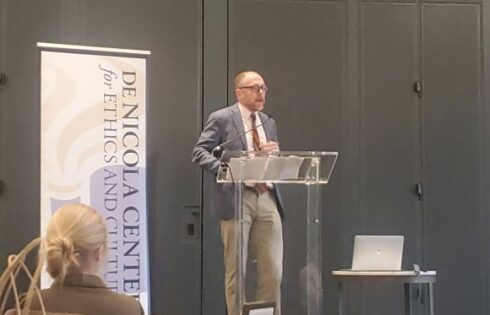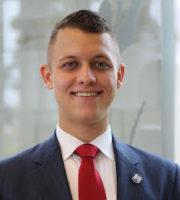
One expert says probably; Schools don’t want to comment on restrictive speech policies
Two public universities in the last year have suspended professors and placed gag orders forbidding them from communicating with students during their suspensions. The universities dodged questions from The College Fix on the matter. An expert in free speech rights, meanwhile, says the gag orders likely pass constitutional muster, at least in principle.
In September, The College Fix reported on the suspension of Professor Kollbe Ahn from the University of Central Florida. Ahn was temporarily dismissed after he produced a video with a student acting as his “anger translator.” The university said the video sparked “several verbal complaints.” That professor was barred from speaking to students during his suspension.
In an unrelated case, in April 2019, The Fix reported that Virginia Commonwealth University had suspended Professor Javier Tapia, while at the same time prohibiting his contact with students, after he called the university police on a professor he mistakenly believed was a student trespassing in a restricted area of the campus.
Ahn’s suspension appears to be ongoing. Tapia had sued Virginia Commonwealth University over the circumstances of his suspension; that suit was resolved earlier this year.
The two universities were unwilling to discuss the controversial gag order decisions. The schools either failed to answer queries regarding the suspensions or else declined comment. The Fix had sought to learn how often the school forbids suspended professors from speaking with students, and whether or not it had ever faced any legal challenges for that policy.
Michael Porter, a spokesman for Virginia Commonwealth University, told The Fix via email: “Professor Tapia’s lawsuit against VCU has been dismissed by mutual agreement. While he remains a tenured professor in the School of the Arts, he is not teaching classes this academic year…VCU anticipates that Professor Tapia will resume teaching duties at some point in the future, but that date has not yet been determined.”
“Beyond that, we are unable to provide any further information about confidential personnel matters.” Porter did not respond to a followup email that asked a series of questions about non-confidential university policy.
Reached for comment via email, Tyler Winik, a staffer in the University of Central Florida’s Office of the General Counsel, directed The Fix to the university’s public relations department. Nobody from that office responded to multiple emails.
School ‘probably has a free hand’ in speech regulation
Terry Pell, the president of the nonpartisan advocacy group Center for Individual Rights, said the schools in question likely have a “free hand” concerning these sorts of decisions. He told The Fix via email that these administrative penalties “[aren’t] a clear violation of the First Amendment except in the unusual circumstance where the restraint is so broad and irrational as to be unrelated to any legitimate institutional interest whatsoever.”
“A school can largely regulate what a teacher says in front of his class without having to contend with the First Amendment as part of its authority to decide what is taught and how it is taught. In a college setting, a school can regulate other teacher student interactions without implicating the First Amendment,” Pell said, adding:
It’s possible that the Supreme Court would create an exception in a case that raised a clear issue of academic freedom. But the recent case law goes the other way on the rationale that the employee is speaking for the institution and the institution has a broad first amendment right of its own to determine what its employees say on its behalf.
Even if the teacher’s speech was covered by the First Amendment, an institution has objective reasons to prevent someone on administrative leave from talking – both to prevent witness intimidation and to prevent further harm to students. So a court is unlikely to find that the school is discriminating on the basis of viewpoint in violation of the First Amendment. The case will turn on how reasonable the school’s concerns are under the circumstances.
“I think the main issue in these cases is the legitimacy of the underlying infraction, not so much the gag rule. If there is a legitimate reason for investigating a professor, then the gag rule while on administrative leave is easier for the school to justify,” Pell said.
“On the other hand, if the school is violating the free speech rights of the professor by investigating him or her in the first place, then the gag rule is further harm to his or her free speech. The gag rule is incidental to the investigation.”
Professors suspended under dubious circumstances
The University of Central Florida suspended Professor Kollbe Ahn after he posted a video with a student as his “anger translator.” In that video, Ahn speaks calmly and levelly while his “translator” hurls vitriol and expletives at the camera.
WKGM-TV reported that the school suspended Ahn after it received “several verbal complaints” about the skit. In a now-private video, Ahn said that he had been barred from campus and that he was not allowed to communicate with students from the university. “I don’t know if that violates my First Amendment rights, but anyway, I’m following that order,” he said in the video.
Shortly after, some students started a Change.org petition in support of the professor. “Dr. Ahn was exercising his freedom of speech OUTSIDE of his class and the class believes his suspension is unjust to him and every student in that class,” the petition reads. At the time of this article, the petition had more than 840 signatures.
Reached for comment via email, Adam Steinbaugh, the director of the Individual Rights Defense Program at the Foundation for Individual Rights in Education, said the organization could not comment extensively on Ahn’s case yet.
“We’re aware of this issue and expect the University of Central Florida to adhere to its requirements that it provide due process. A public university’s restrictions on faculty speech raise important First Amendment concerns and should be resolved swiftly,” he said.
At Virginia Commonwealth University, meanwhile, art professor Javier Tapia was suspended after a visiting professor, who was black, accused Tapia of calling campus security on her. An internal investigation eventually found that Tapia hadn’t acted in any racist or discriminatory manner. Yet the school suspended him anyway, also forbidding him from having any contact with students during the time of the suspension.
Tapia filed a lawsuit in December 2018 alleging “a draconian prior restraint…that prohibits Tapia . . . or anybody acting on his behalf from having any contact of any kind with any VCU faculty, staff, or students, including in-person contact, telephone calls, text messages, emails, Facebook, Twitter, or other forms of messaging or social media contacts.” That lawsuit was dismissed this summer.
MORE: University demands professor sign away his free-speech rights if he wants his job back
MORE: After calling security on black professor, prof says his school won’t let him talk to students
IMAGE: hafakot / Shutterstock.com
Like The College Fix on Facebook / Follow us on Twitter





Please join the conversation about our stories on Facebook, Twitter, Instagram, Reddit, MeWe, Rumble, Gab, Minds and Gettr.